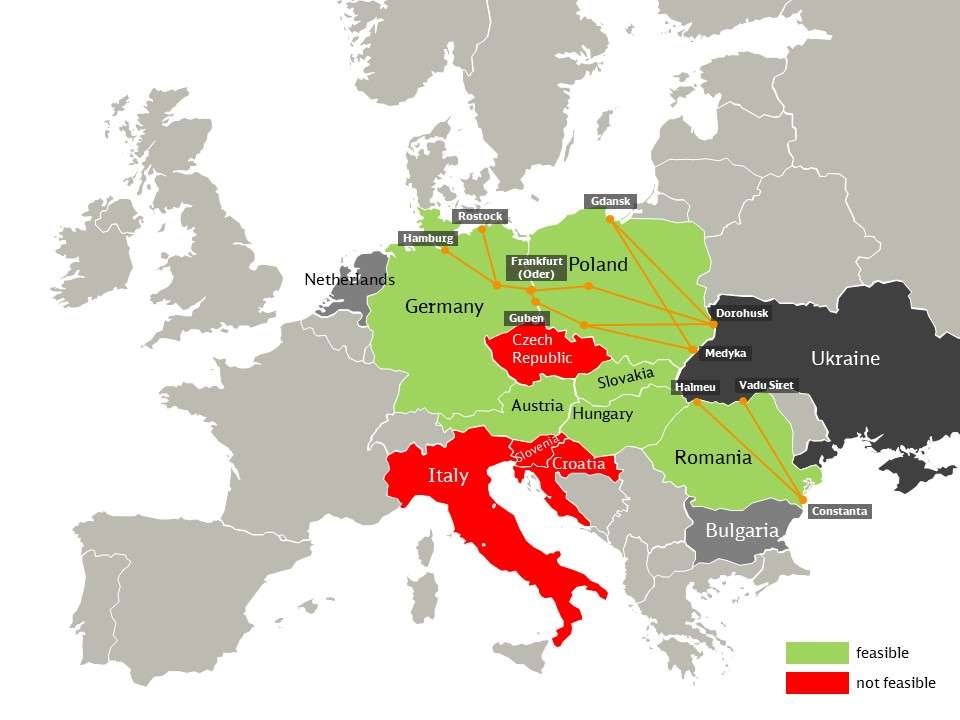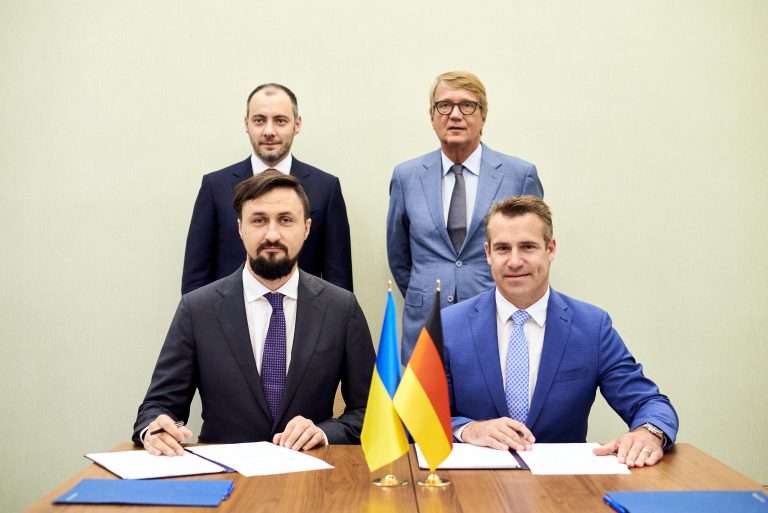European route-mapping for Ukrainian Railways grain transport completed
DB Engineering & Consulting has successfully completed a feasibility study on behalf of JSC Ukrainian Railways. The team identified routes that are compatible with Ukrainian hopper cars in order to support land-based grain transport to western Europe.

Contact
DB Engineering & Consulting
EUREF-Campus 14
10829 Berlin
Germany
This summer, millions of tons of grain from Ukraine could not be exported due to the blockade of Ukrainian ports by the Russian military. Due to a lack of hopper cars there suitable for the 1435 mm gauge infrastructure, one of the logistics measures that has been considered to support the land-based export of grain is the installation of European 1435 mm bogies on the Ukrainian 1520 mm rolling stock.
The Logistics Consulting team at DB Engineering & Consulting has addressed this proposal in a recently finalized feasibility study, which successfully investigated the European routes’ compatibility with Ukrainian hopper cars on behalf of JSC Ukrainian Railways.
Supporting land-based grain transport
The goal of this project was to analyze the technical and operational compatibility of different types of Ukrainian hopper cars on their way to 12 selected ports in central and western Europe (Poland, Lithuania, Germany, the Netherlands, Italy, Croatia, Slovenia, and the Czech Republic) and south-eastern Europe (Bulgaria and Romania) and in close proximity to Ukraine’s borders. The main research question was:
Which routes connected to the selected sea ports are technically feasible (in terms of clearance profile compatibility) for which type of Ukrainian hopper car?
Ukrainian hopper cars are taller and wider than European ones. The challenge was therefore to investigate whether seaports could be reached and whether the Ukrainian hoppers would still be compatible with the European rail infrastructure.

The results reveal the European routes that are feasible (in terms of clearance profile compatibility) for the grain exports transported by 19-752-type freight cars, which represent approximately 90% of the total Ukrainian fleet available for operations in the EU. In total, 10 routes have been found feasible and four ports were identified that can be reached: Constanta in Romania, Gdansk in Poland, and Rostock and Hamburg in Germany. In the next steps, the remaining issues on the technical compatibility with European standards have to be addressed and resolved, such as safety regulations, noise reduction, and certification of bogie-changing systems (ECM certificate).





